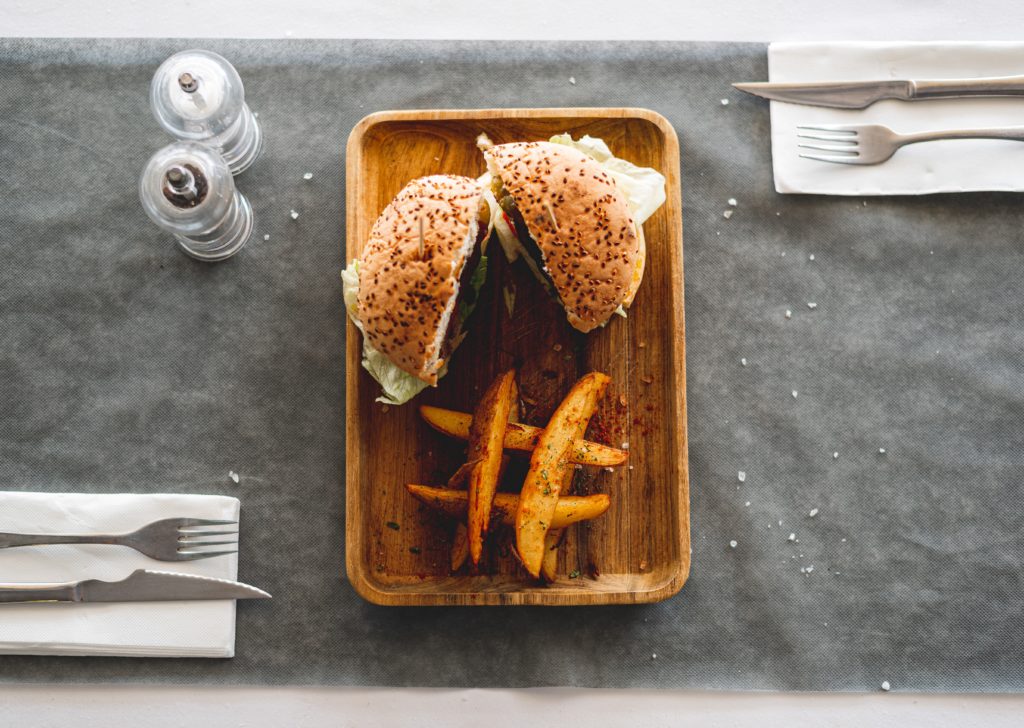 In 2011, the Clean Water Agency found that 49% of litter is from fast food waste. The five largest sources are McDonald’s, Burger King, Seven-Eleven, Starbuck’s, and Wendy’s. In 2013, the average fast-food restaurant was producing 200,000 pounds of food waste alone. That’s not including plastic waste. However, in recent years more information has been released about the severity of single-use plastics on our planet. As more people started speaking up and demanding changes to these businesses, they have increased their efforts to reduce their waste.
In 2011, the Clean Water Agency found that 49% of litter is from fast food waste. The five largest sources are McDonald’s, Burger King, Seven-Eleven, Starbuck’s, and Wendy’s. In 2013, the average fast-food restaurant was producing 200,000 pounds of food waste alone. That’s not including plastic waste. However, in recent years more information has been released about the severity of single-use plastics on our planet. As more people started speaking up and demanding changes to these businesses, they have increased their efforts to reduce their waste.
Even more recently, the pandemic has made it even harder to reduce waste. So when I heard about Burger King’s new partnership with Loop, I was very excited. Loop is a packaging company that focuses on partnering with brands to create a closed, circular packaging solution for their products. They’ve already created reusable packaging for brands like Crest, Haagen Dazs, Tropicana, and many others. You can order items off of the Loop website, which will be delivered to you in a waste-free tote to your door. When you’re ready for your refills, you can schedule a pickup of your tote. Think of it like the modern-day “milk” man service.
The partnership between Loop and Burger King brings reusable drink and sandwich containers to Portland, Tokyo, and New York starting next year. Customers will be able to go to their nearby Burger King and opt to have their meal packaged in a reusable container for a small, 100% refundable deposit. The next time they come back, the customer gives the container back to Burger King, which is then thoroughly cleaned and sanitized before being reused for another meal, and the customer gets his or her deposit back. I read about this new program on several major news channels, and almost every one of them spoke about this refundable deposit as a negative. However, I see it as an incentive for people who might not prioritize lowering their waste to actually return the container rather than just throwing it away and creating even more waste. Thanks to the deposit, the consumer will return the container, they’ll get their money back, and the planet gets to be a little healthier.
Although testing is only happening in previously mentioned cities next year, Burger King and Loop will hopefully roll this program out to the rest of the U.S. and other countries around the world shortly as well. (Side note: Burger King also has successfully launched the Impossible Whopper, which is a significant step in moving the needle toward a plant-based world.) Until then, I suggest bringing your own to-go cups and tupperware boxes for your meals, which goes for whatever restaurant you’re eating at. Of course, I recommend asking ahead of time if this is okay due to the pandemic, but there’s always a way to cut down on waste, even if it’s not “perfect.”
Companies like Loop are giving big businesses a chance to cut down on consumer waste without having to spend too much money or resources on it. I hope that more fast-food companies take this opportunity to create low-waste solutions of their own. The next step for these businesses must be tackling food waste. 200,000 pounds of food waste for a single restaurant is unacceptable. However, they are listening to us. We must continue to speak up for the planet and its future generations.
Also see: Nordstrom Will Begin Beauty Packaging From Every Brand For Recycling
How I Went From Drinking Starbucks To Embracing Zero Waste and Slow Living
Get more like this—Sign up for our daily inspirational newsletter for exclusive content!
__
Photo: Ralph (Ravi) Kayden on Unsplash




